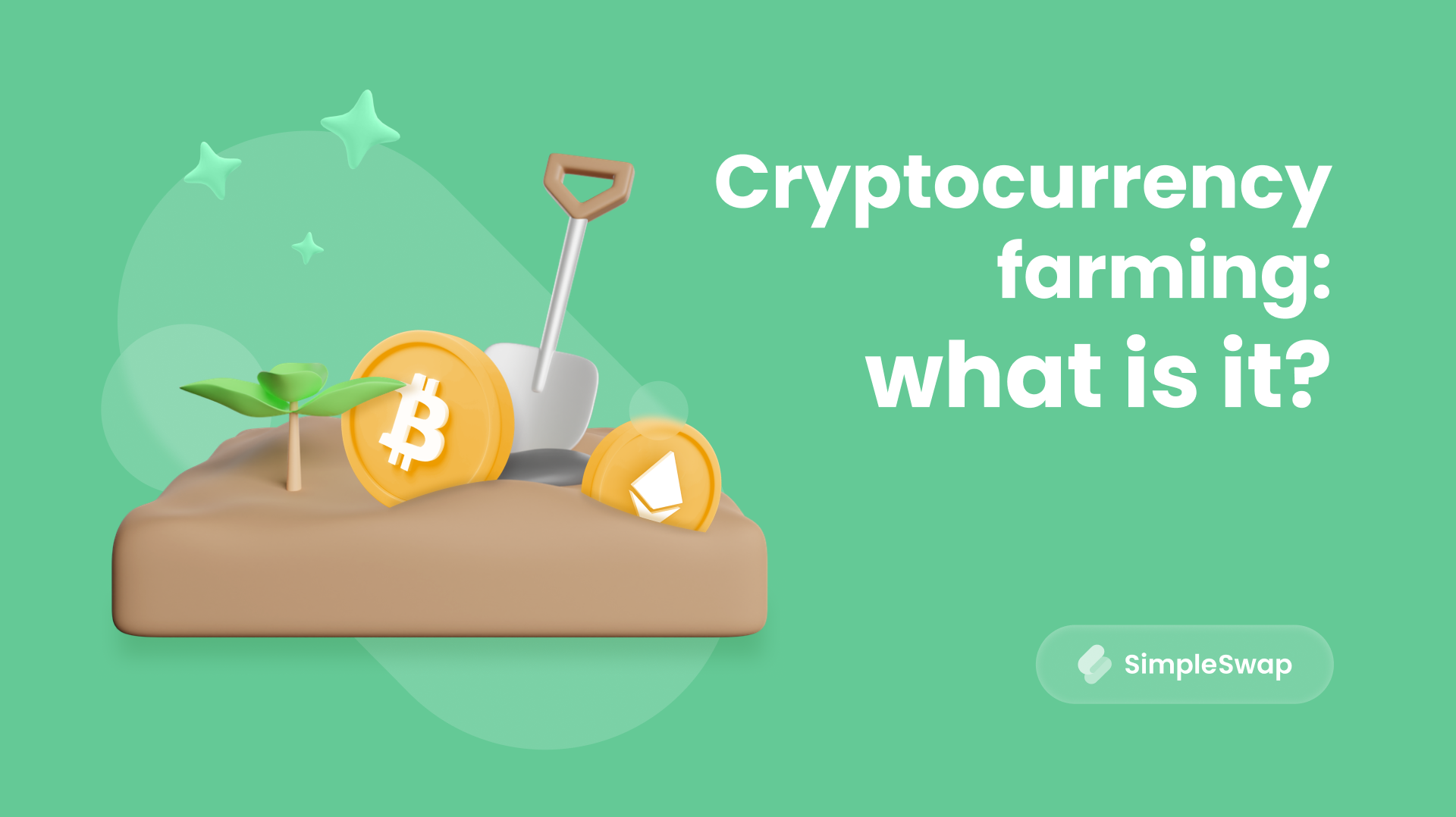
Crypto Farming: The Gold Rush of the Digital Age
Venturing into the Crypto World often involves seeking new avenues for earning money. The first idea that usually comes to mind is cryptocurrency mining, but usually it's quickly discarded due to the high cost of equipment. The most common way to acquire cryptocurrencies is to purchase a few crypto assets on exchanges using fiat (such as dollars, euros, and so on). Afterward, you can either enter the investment field and closely monitor the market's pulse or delve into farming. But what exactly is farming, and how much can you earn from it? Let's find out below.
Cryptocurrency farming: what is it?
Farming is one of the central concepts in the world of cryptocurrency lending systems. It involves entrusting your crypto assets to external entities according to the terms of an agreement. The agreement outlines the conditions for returning the assets and the interest rate charged for the services rendered.
In essence, farming is a method of passive income generation by renting out your crypto assets. DeFi platforms often utilize rental services to maintain the liquidity of their pools and ensure the stability of their projects.
The pros and cons of cryptocurrency farming
At first glance, what could be simpler than renting out your property and earning income in return? To many investors, cryptocurrency farming appears to be the perfect scheme for making money. Unfortunately, it's not quite that straightforward.
Advantages of cryptocurrency farming:
Passive income. Farming offers entrepreneurs a percentage of their cryptocurrencies, or rather, their use by third parties. This eliminates the need to engage in trading on exchanges to increase your crypto wallet balance.
Diversification of crypto portfolio. Farming involves continuously diversifying your crypto portfolio with various types of
cryptocurrencies. To maximize earnings, crypto owners need to invest in different projects and liquidity pools that typically reward users with their tokens. This ensures that an entrepreneur's crypto portfolio is equipped with various cryptocurrencies, minimizing losses in case one of them declines.Supporting the DeFi ecosystem. The development of DeFi platforms largely depends on investor participation. Maintaining platform liquidity allows projects to issue retrodrops, attracting new users and increasing platform activity. All of this enables DeFi projects to strengthen their market positions, enhance security systems, and serve a larger customer base
Now, let's consider the risks:
Low interest rates. As mentioned earlier, platforms pay crypto asset owners for their use, but this sum may not always cover losses. In the event of a cryptocurrency market drop or a sudden "crypto winter", user funds can either be lost or frozen.
High market volatility. This factor is the primary obstacle for investors aiming for "gold mines" in trading. The cryptocurrency market is highly unstable, and price fluctuations can significantly damage an entrepreneur's wallet.
Smart contract vulnerabilities. Farming relies on smart contract systems, which handle the creation of rental agreements, monitor their execution, calculate interest, and transfer funds between accounts, among other things. While this process is automated and time-saving, smart contracts can contain errors and experience technical failures.
Cryptocurrency farming can indeed offer exciting opportunities for income generation, but it comes with substantial risks that demand careful consideration. Diversification and a thorough understanding of the crypto market are key to navigating this field successfully.
Key cryptocurrency farming strategies
Experienced investors have learned how to earn from cryptocurrency farming by assessing risks and developing profitable strategies. Here are some of them:
Participating in high-yield pools with high risks. Typically, this is a high-stakes game suitable only for self-assured investors. Investors who choose this strategy are willing to take significant risks and are confident in their abilities. In case of losses, they can quickly replenish their wallets through other operations and are unafraid of taking risks on exchanges.
Investing in stablecoin pools. This strategy shields investors from the risks associated with the high volatility of cryptocurrencies, as stablecoins are known for their price stability. While the returns may be lower compared to riskier pools, income is more stable.
Reinvesting in the same pool. Reinvesting allows for the multiplication of income over time.
Conclusion
Cryptocurrency farming, that seemingly effortless endeavor promising passive riches and endless intrigue, has left many investors pondering its enigmatic nature. As we've unraveled its mysteries in this article, we've encountered both the alluring and perplexing facets of this digital domain.
On the one hand, there are the daring souls who leap headfirst into high-yield pools, ready to dance on the precipice of risk and reward. Then there are the steady sailors of stablecoin pools, sailing the tranquil seas of predictability. And let's not forget the clever compounding strategists, diligently turning percentages into percentages of percentages.
Yet, the cryptocurrency market remains the wildest of roller coasters, where dreams of wealth are chased by the ghosts of market crashes. While the experts prophesize a future where cryptocurrencies find stability and DeFi reigns supreme, today's reality is a chaotic whirlwind.
In the grand scheme of things, cryptocurrency farming is a dynamic and ever-shifting puzzle, requiring its players to balance on the tightrope of risk and reward. It's far from a guaranteed path to financial Nirvana, and potential participants should be prepared to surf the waves of unpredictability.
In essence, the decision to embark on a cryptocurrency farming escapade should be made with well-aligned financial goals and a willingness to embrace the uncertainty. As with any adventure, thorough research, diversification, and a dash of irony will be the key to not only surviving but thriving in the cryptic realm of cryptocurrency farming. After all, what's life without a little irony?